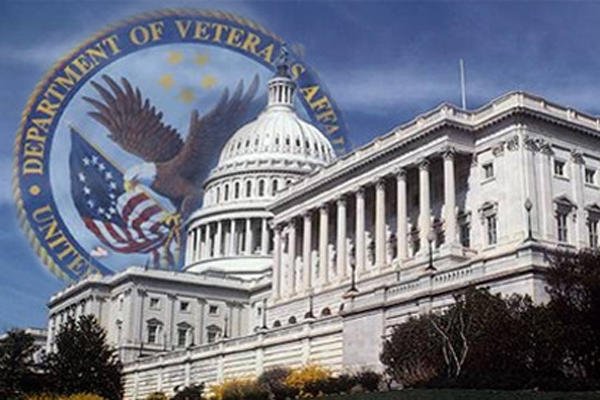 Military Update: Before Donald Trump or House Veterans Affairs Committee Chairman Jeff Miller (R-Fla.) or a panel of health industry executives called this month for a leadership makeover to save VA healthcare, a separate committee of VA advisors asked critics this election year to stop ignoring an unprecedented transformation occurring across the Department of Veterans Affairs.
Military Update: Before Donald Trump or House Veterans Affairs Committee Chairman Jeff Miller (R-Fla.) or a panel of health industry executives called this month for a leadership makeover to save VA healthcare, a separate committee of VA advisors asked critics this election year to stop ignoring an unprecedented transformation occurring across the Department of Veterans Affairs.
Veteran service organizations echo a similar message, noting, for example, that key parts of Trump’s 10-point plan to improve VA healthcare, unveiled Monday in Virginia Beach, were embraced months ago by VA and are being implemented or awaiting new authorities or funding from Congress.
In an era of bitter partisanship, politicians can shine no light on achievements by the opposition party, even on issues critical to veterans. The risk of such strategy, the MyVA Advisory Committee suggests, is that politics will steal momentum from real reforms, and return VA to crisis mode, even as candidates vow that their highest priority is to help veterans.
MyVA Advisory Committee is a dozen leaders and subject matter experts on veteran issues, business and higher education. The twelve were appointed in March 2015 to advise VA on implementing Secretary Bob McDonald’s “MyVA initiatives” with its goal to create “a high-performing and customer-focused culture” across VA. Though McDonald appointed them, MyVA committee members operate independent of VA, tracking and evaluating progress for improving access to benefits and quality care.
Given the drumbeat of criticism still being leveled at VA, and a feint by the congressionally chartered Commission on Care to propose dismantling VA healthcare and have veterans rely solely on for-profit care, the advisory committee released a preliminary report card on MyVA three months early.
Its members unanimously agreed “the change we have witnessed over the past 15-months – at all levels of the Department – is unprecedented.” Though significant challenges remain to modernize VA, the committee said, the transformation underway “is right, appropriate and does set a course for long-term reform and excellence across the department.”
The committee “strongly urges those who would…politicize the ongoing reform at VA to consider first…the debt of honor that’s been earned” by veterans and “how a grateful nation best pays on that debt.”
The committee chair is retired Army Major Gen. Josue (Joe) Robles, Jr., former president and chief executive officer of USAA, an insurance and investment association for military and veterans. Its vice chair is Air Force veteran Michael Haynie, vice chancellor at Syracuse University and executive director of its Institute for Veterans and Military Families.
In a phone interview, Robles and Haynie confirmed that their worry election-year politics and the Commission on Care report might derail current reforms had sparked the MyVA progress report months ahead a fall deadline.
“This is the political season and I know there’s a lot of pressure on a lot of people to make statements or take positions,” said Robles. “And we wanted to make sure it’s clear the direction we’re heading” on assessing VA.
Haynie said he wouldn’t have supported releasing the statement last week if he had seen only marginal changes to VA programs and performance.
“Instead, what we have seen has truly been fundamental change in accountability, in transparency and in culture. It’s the kind of change that really does set a long-term direction for VA that is drastically different from the course VA was on two years ago.”
“We all agree,” Haynie added, “that the worse thing we can do is politicize veterans issues such that veterans are last folks people are thinking about.” Inside VA, he said, a wave of reforms has been driven by “authentic and purposeful focus on how do we do better by veterans.”
Nothing merits or demands a collaborative approach to developing good policy, programs and services than those aimed at veterans, Haynie said. So it serves everyone, regardless of political orientation, that the VA transformation “not be political or parochial or motivated by self-interest. It the definition of where citizenship should be the prevailing logic.”
Trump and Miller, who introduced Trump at his Monday speech, had other goals in mind. Miller, who is retiring, has led criticism of VA for years, including through the wait-time scandal that found scores of VA executives protecting their bonuses by hiding lists of patients waiting for care.
Despite a near wholesale change in top VA leadership, Miller and GOP colleagues are keeping the focus on fresh pockets of executive abuses, and rail against VA’s inability to fire or swiftly discipline career bureaucrats.
Trump signaled that Miller might be his nominee for VA secretary. In his introduction to Monday’s speech, Miller said veterans have been ill served by VA, not for lack of budget dollars, which have “quadrupled” since 2001, but due to scandal after scandal allowed by failed leaders.
He called VA “a model of government dysfunction” and tagged former senator and secretary of state Hillary Clinton “a career bureaucrat” who would allow more scandals.
Trump, Miller said, “doesn’t view VA’s problems as a fantasy that’s been created by the opposition party. He knows that they’re real.”
Point one of Trump’s 10-point plan to fix VA healthcare, Trump said, is to appoint a VA secretary of “great competence” and “not be a political hack,” as he labeled McDonald, a West Point graduate, former Army Ranger and former chief executive of Proctor & Gamble Corp.
Trump promised to give “every veteran” in America access either to VA or private sector health care, a move veterans service organizations oppose, fearful that ballooning costs would put the entire VA health system at risk, a special concern for severely disabled veterans on rely on VA the most.
Other Trump ideas that had vet groups confused were his call to move veterans to the front for visas, and to relax “confinement rules,” perhaps a reference to criminal sentences given veterans who are diagnosed with post-traumatic stress or service-related brain injury. But Trump didn’t elaborate.
Send comments to Military Update, P.O. Box 231111, Centreville, VA, 20120, email milupdate@aol.com or twitter: Tom Philpott @Military_Update.
# # # #
Tom Philpott has been breaking news for and about military people since 1977. After service in the Coast Guard, and 17 years as a reporter and senior editor with Army Times Publishing Company, Tom launched "Military Update," his syndicated weekly news column, in 1994. "Military Update" features timely news and analysis on issues affecting active duty members, reservists, retirees and their families.
Visit Tom Philpott's Military Update Archive to view his past articles.
Tom also edits a reader reaction column, "Military Forum." The online "home" for both features is Military.com.
 Tom's freelance articles have appeared in numerous magazines including The New Yorker, Reader's Digest and Washingtonian.
Tom's freelance articles have appeared in numerous magazines including The New Yorker, Reader's Digest and Washingtonian.
His critically-acclaimed book, Glory Denied, on the extraordinary ordeal and heroism of Col. Floyd "Jim" Thompson, the longest-held prisoner of war in American history, is available in hardcover and paperback.




